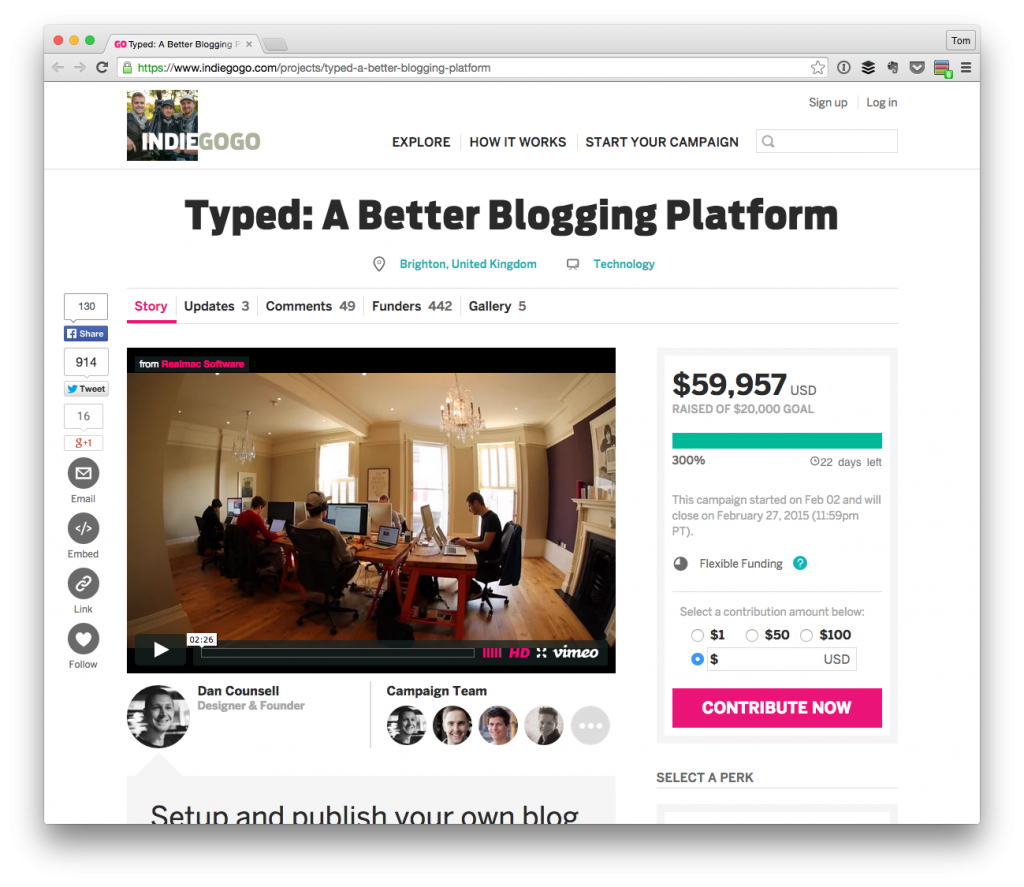If you hang around WordPress long enough – or arguably any community long enough – then you’re likely to see certain conversations show up again and again.
Right now, it’s undeniable that WordPress has massive marketshare and that it’s doing a good job of maintaining that; however, there’s questions as to whether or not WordPress can grow beyond what it currently has.
This is true for a variety of reasons the least of which isn’t the fact that there are other new content management systems cropping up much more frequently than others.
This makes us nervous. Conversations start, blog posts go up (I guess this one is included, I dunno – I tend to take a different approach), and then FUD begins to fuel more of the conversation.
But I think that’s the problem: We forgo where we’ve been, where are, and where we can head, then we look to our and left and our right and feel like we’re doing something less superior.
What’s that all about?
A Little WordPress Competition is a Good Thing
I’ll be the first to admit that I’m a fan of a lot of the new systems that are cropping up. This includes services like Ghost, Medium, and the most recently funded Typed. They each bring with them a unique perspective, a unique take on the whole blogging thing.

And that’s great.
But given our response to these new platforms, WordPress seems to be perceived as this crotchety old man who is sitting on his or her front porch complaining about all of the other kids showing up on his or her lawn.
This attitude isn’t new. Like I said, it shows up every now and again whenever something stirs the proverbial blogging stew.
Here’s the thing, though: WordPress, like many – though not all – of the other platforms that are available is open source. This means that we’re free to borrow ideas, to shun ideas, to refactor ideas, to re-implement ideas, and generally look around and see what works, what doesn’t, and how we can make it better for our own needs.
Secondly, a new, small platform aimed directly at bloggers is not going to automatically upset WordPress overnight. Sure, everyone wants their favorite platform with as much marketshare as possible (who wouldn’t?), but I don’t think it’s possible to really compare some of these alternatives because WordPress is more than just a blogging platform. It’s matured into the realm of content management.
If others want to go after the blogging niche, then go for it – do the best you can, introduce some new ideas, make it fast, attractive, and help people share their words. We should have choices in how we do this.
We need to remember, though, that WordPress is not just about blogging anymore. Furthermore, we need to remember that the core developers iterate and release very, very, frequently on WordPress. They take great pains to pay attention to backwards compatibility all the while looking for ways to improve accessibility and to introduce tools that make content management easier for us with every release.
I’m Not Being Defensive. Honest.
If this sounds like I’m on the defensive for WordPress and its up-and-coming peers in the blogging world, I’m not (at least, I don’t mean to be).
If anything, this is more of a statement of how I perceive WordPress against the variety of blogging platforms that are showing up around it. Simply put, WordPress is more than just blogging at this point and just as it’s taken years for it to get where it’s going, so will it take years for something else to come along and upset it.
Does this mean the new tools that are being released aren’t up to snuff? Absolutely not. Some of them do things beautifully; some of them have ideas that fit in the “I wish I had thought of that” category.
But that’s neither here nor there, for now.
Instead, I think it’d help all of us a lot more if we were to stop trying to have our conversations in a silo and look and the much broader landscape of both blogging and content management software, and then try to determine the best course of action from there.


Leave a Reply
You must be logged in to post a comment.